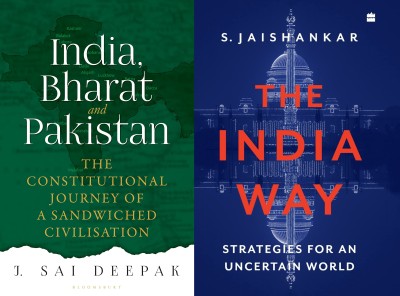India, Bharat And Pakistan+The India Way(Paperback, S. Jaishankar, J Sai Deepak)
Quick Overview
Product Price Comparison
The decade from the 2008 global financial crisis to the 2020 coronavirus pandemic has seen a real transformation of the world order. The very nature of international relations and its rules are changing before our eyes. For India, this means optimal relationships with all the major powers to best advance its goals. It also requires a bolder and non-reciprocal approach to its neighbourhood. A global footprint is now in the making that leverages India's greater capability and relevance, as well as its unique diaspora. This era of global upheaval entails greater expectations from India, putting it on the path to becoming a leading power. In The India Way, S. Jaishankar, India's Minister of External Affairs, analyses these challenges and spells out possible policy responses. He places this thinking in the context of history and tradition, appropriate for a civilizational power that seeks to reclaim its place on the world stage.India, Bharat and Pakistan, the second book of the Bharat Trilogy, takes the discussion forward from its bestselling predecessor, India That Is Bharat. It explores the combined influence of European and Middle Eastern colonialities on Bharat as the successor state to the Indic civilisation, and on the origins of the Indian Constitution. To this end, the book traces the thought continuum of Middle Eastern coloniality from the rise of Islamic Revivalism in the 1740s following the decline of the Mughal Empire, which presaged the idea of Pakistan, until the end of the Khilafat Movement in 1924, which cemented the road to Pakistan. The book also describes the collaboration of convenience that was forged between the proponents of Middle Eastern coloniality and the British colonial establishment to the detriment of the Indic civilisation. One of the objectives of this book is to help the reader draw parallels between the challenges faced by the Indic civilisation in the tumultuous period from 1740 to 1924, and the present day. Its larger goal remains the same as that of the first, which is to enthuse Bharatiyas to undertake a critical decolonial study of BharatŌĆÖs history, especially in the context of the Constitution, so that the religiosity towards the document is moderated by a sense of proportion, perspective and purpose


